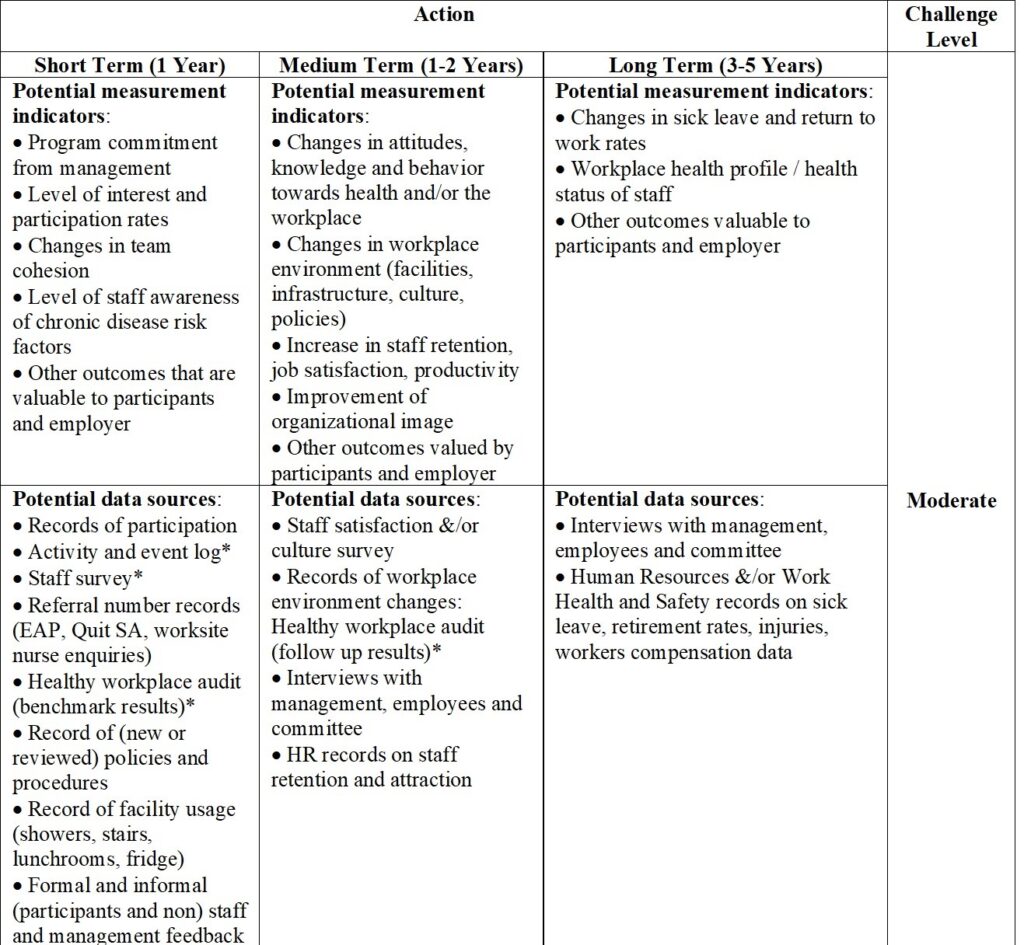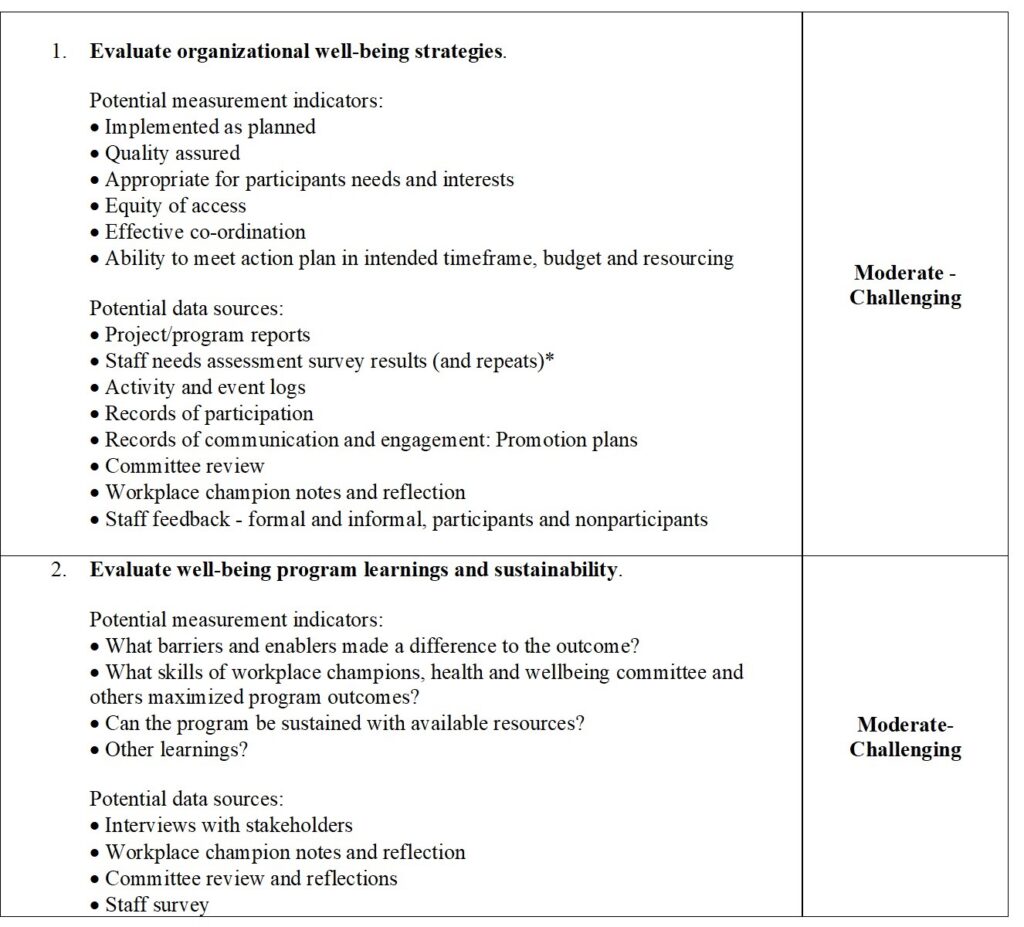
Measure Outcomes & Make Improvements
To develop, improve, and justify your organization’s well-being program, it will be important to continually evaluate the success of individual program elements (e.g., attendance/participation) and measure overall progress on well-being indicators (e.g., engagement).
The Kirkpatrick model (and related models) is most often used to evaluate development programs. It recommends evaluating multiple factors as indicators of success. Possible measures include:
• Satisfaction with and attitudes toward well-being programs;
• Extent of learning new information and skills;
• Behavioral change growing out of the programs;
• Measures of lawyer well-being and organizational success.
Workplace Well-Being Measurement Tools:
Harvard Center for Health & Happiness Repository of Workplace Well-Being Measures
Recommendations:


Join the Colorado Lawyer Well-Being Leadership Cohort to gain in depth skills in measuring the success of your organization’s well-being program!

